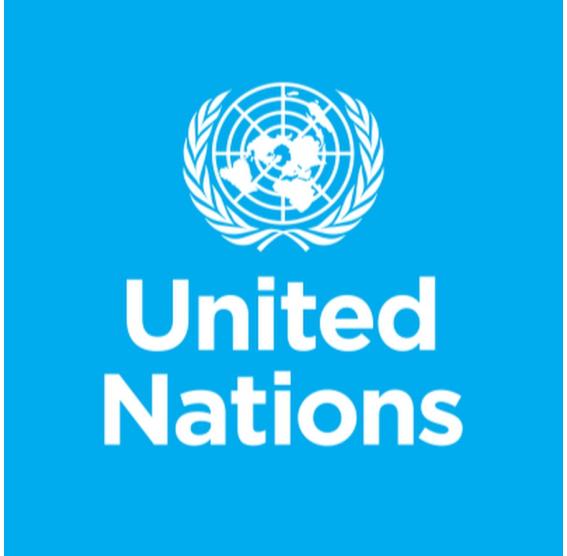Foreign News
Power of Humanity’ can Overcome COVID-19, Climate Challenges – UNGA President

The President of the UN General Assembly, Abdulla Shahid, on Tuesday opened the 2021 annual General Debate as a hybrid in-person and virtual event, reflecting the darkest days of the COVID-19 pandemic.
The Assembly reflected on the darkest days of the pandemic, “when cities were shuttered and vaccines still a dream” and how the world’s peoples “came together as never before”.
Abdulla Shahid of the Maldives said that after a year and a half of suffering “in silence and in anxiety”, it was hope and a sense of shared humanity that enabled this coming together, adding: “Let us give them hope now”.
He recalled that “in record time”, scientists globally collaborated to develop multiple COVID-19 vaccines and “the largest vaccine roll-out in the history of humankind”, calling it a “monumental” undertaking to “be proud” of.
The Assembly President said that over the next 12-months, the world wants solutions to the collective challenges of “fragility, conflict, COVID-19, [and] climate change”.
“These issues…keep our citizens awake at night, they fuel a collective anxiety and a worry that things are progressively getting worse,” he said.
“They are not wrong. We can do more”, Shahid added.
On COVID-19, the UN official outlined that the world has vaccines, know-how and distribution capacity, but “we lack only the political support”.
And despite incredible innovations in renewable energy, adaptive technologies, and transitioning away from fossil fuels, he noted, “political support and the related financing” is in short supply on the changing climate.
While highlighting a near-universal desire for nuclear disarmament and non-proliferation, the Assembly President said, “yet we falter at the finish line, leaving treaties unratified”.
Finally, on the humanitarian front, he pointed out that despite a more-than-sufficient supply of food and water in the world, famine and drought hang in the balance.
“Hundreds of millions will require humanitarian assistance by year’s end,” Shahid warned.
Pointing out that we are living through a “turning point” moment in time, he said: “We can choose a path of isolationism…mutual destruction…slow retreat of the human experiment, or we can forge together a new path, a sustainable and resilient path that changes the future of our planet”.
While describing the COVID-19 pandemic as “a tragedy of the grandest scale”, he also referred to it as a “canary in the coal mine”, warning of the perils that lie ahead if hard, but necessary, choices were not made.
Shahid cited the power of humanity to overcome challenges and was hopeful “that we can bypass protocols and obstacles to transform our societies”.
The UN General Assembly President shared his intention to pursue five “rays of hope” to direct the Assembly’s 76th session, beginning with vaccine equity.
To this end, he will host a high-level meeting focusing on practical obstacles around supply, storage, and distribution. And on longer-term COVID-19 recovery, he vowed to push to build back “better, stronger, greener, and bluer”, the UN correspondent of the News Agency of Nigeria (NAN) quotes him as saying.
“By following the paths laid out by Agenda 2030 [on sustainable development for all] we can pivot away from destructive practices and embrace a better future,” Shahid said.
The Assembly President spelled out the importance of refocusing attention on the climate crisis, “which has taken a backseat to COVID-19”.
Citing the report of the Intergovernmental Panel on Climate Change (IPCC), he said: “We are no longer on the wrong path… we are on the edge of the cliff”.
To address this, Shahid will host a series of climate action events, beginning with helping to bridge gaps to deliver on climate promises – in the lead-up to November’s UN climate conference (COP26), and later, a “super session on the environment” that encompasses the interlocking issues of the ocean, desertification and biodiversity.
The Assembly President also underscored the importance of continued UN reform and revitalisation, saying “this is not about a balance of power, this is about efficiency”.
“We have never been so technologically advanced…so connected…[or] had the wealth, the resources, or the know-how that we have now.
“There is nothing in our path to stop us but ourselves. Let us be the UN that people want us to be,” he said. (NAN)
Foreign News
China to Eliminate Tariffs on Imports from African Countries

China has announced the full removal of tariffs on imports from all African countries, ENA, a partner of TV BRICS, has reported.
The tariff elimination falls under the new China-Africa Economic Partnership for Shared Development, a framework designed to accelerate Africa’s integration into global trade by increasing market access, improving customs procedures, and strengthening institutional trade capacity.
The initiative is part of a broader effort by Beijing to support industrialisation, diversify imports, and reinforce economic links with African states beyond raw materials.
President Xi Jinping reaffirmed China’s readiness to welcome all African exports under zero-tariff treatment.
He emphasised that the new arrangement would be accompanied by enhanced cooperation in customs, quarantine, logistics, and capacity building.
China also pledged to support training programmes and expand the visibility of high-quality African goods in the Chinese market.
In 2024, China–Africa trade reached nearly 300 billion dollars, consolidating China’s position as Africa’s largest trading partner.
Observers note that the new tariff policy may further strengthen the African Continental Free Trade Area by encouraging intra-African production and export diversification.
The strategic shift is expected to unlock new opportunities for value-added goods and services from across the continent, reinforcing Africa’s role in global supply chains. (TV BRICS/NAN)
CRIME
Man in Germany Charged with Serial Rape After Drugging Victims

German prosecutors on Tuesday have charged a 43-year-old Chinese national with 22 offences, including attempted murder and aggravated rape after drugging victims, in some cases involving women he knew.
The accused, who was not identified, is suspected of sedating women with sleeping pills and raping them in eight cases.
Prosecutors in Frankfurt said some victims knew the defendant and were unaware of what was happening.
In four cases, the man is suspected of overpowering, anaesthetising and raping the victims during property viewings and of videoing or photographing the acts.
In seven cases, the drug dose was so high it may have endangered victims’ lives, prosecutors said in a statement.
The accused is alleged to have been a member of the Telegram online platform for several years, where he exchanged information about how to sexually assault unconscious women.
He is also believed to have illegally sold sedatives to other chat participants, prosecutors said.
The man from Offenbach, near Frankfurt, is believed to have committed the offences between January 2020 and November 2024, and has been in custody since November 2024, prosecutors said.
The charges follow the high-profile case of Dominique Pelicot in France, convicted in December of repeatedly drugging and raping his wife for almost a decade and inviting dozens of strangers to rape her unconscious body. (Reuters/NAN)
Foreign News
Man Bites Off Part of Another Man’s Ear On Train

A fight on a German train saw a man bite off a piece of another man’s ear, police said on Monday.
The incident occurred on a Deutsche Bahn train between the south-western cities of Mannheim and Stuttgart.
An argument broke out after an unknown man accused a 43-year-old man of looking at his partner.
The former bit the ear of the 43-year-old, who retaliated by biting the man’s finger.
According to police, the unidentified man and his companion were able to leave the train at the central station in Stuttgart and fled.
Police said that they are searching for the man’s identity.
The 43-year-old was taken to the hospital, where the piece of his ear was sewn back on.
(dpa/NAN)(www.nannews.ng)





























